Challenges & opportunities
Developing sustainable food systems
After a prolonged decline, world hunger appears to be on the rise again according to the UN Secretary General’s 2018 Sustainable Development Goals report. More than 800 million people worldwide are undernourished. 150 million children under age 5 are too small for their age and 50 million have too low weight for their height.
Any existing concerns about growing food shortages have been further increased following the locust outbreak in East Africa and the global spread of COVID-19. Especially as some countries are moving to restrict their export of agricultural products, one of the most important challenges is how countries can develop sustainable agriculture that ensures sufficient quantities of highly nutritional food.
Establishing sustainable agriculture requires us to look beyond aspects of nutrition and food security, however. We also need to consider the environmental, social, and economic dimensions of agricultural practices. In particular, sufficient attention should be paid to securing protein sources as more consumers are seeking sustainable food with less environmental impact. Hence, there is a growing challenge to provide plant-based meat-like foods (PBMs), cultured meats, and land-based aquaculture as a means of protein intake.
Conference programme
Food sessions
Watch our conference sessions. Sessions labeled were live-streamed from our studios in Brussels.
Food
Thematic session
Technological innovations to realise sustainable food systems – part 1
28/10/2020, 09:30 - 11:00
The realisation of sustainable food systems depends on many factors that need to be addressed, including soil and land use, breed and farming, and harvesting. For each of them, technological innovation proves to be a critical enabler.
What innovations can help secure soil nitrogen sources and reduce environmental impact, for example? Which technologies enable improved cultivation management, automation of farming operations and increased production? And how can energy savings be achieved in harvesting and distribution?
Achieving sustainable food systems is not just a matter of how food is produced, however. Aspects related to marketing and consumption should be addressed, as well. Which gains to expect by deploying technological innovations for ensuring traceability of produce or re-using food waste, for example? And how to control excess food intake to reduce the amount of food loss?
In conclusion, technological innovation creates opportunities for all these challenges related to production, marketing and consumption of food. In particular, emerging technologies such as Artificial Intelligence, Internet of Things or Big data can help develop monitoring capabilities and platforms to support the development of sustainable food systems.
Chaired by

Maximo Torero Cullen
Food and Agriculture Organization of the United Nations
Chief Economist
Maximo Torero Cullen is the Chief Economist of the Food and Agriculture Organization (FAO). He joined the Organization in January 2019 as Assistant Director-General for the Economic and Social Development Department. Prior to joining FAO, he was the World Bank Group Executive Director for Argentina, Bolivia, Chile Paraguay, Peru and Uruguay since November 2016. Before the Bank, Torero led the Division of the Markets, Trade, and Institutions at the International Food Policy Research Institute (IFPRI).
His major research work lies mostly in analysing poverty, inequality, the importance of geography and private or public assets in explaining poverty, in policies oriented towards poverty alleviation based on the role played by infrastructure, institutions, and on how technological breakthroughs (or discontinuities) can improve the welfare of households and small farmers. His experience encompasses Latin America, Sub-Saharan Africa, and Asia.
Torero holds a PhD and a Master’s degree in Economics from the University of California, Los Angeles (UCLA), and a Bachelor’s degree in Economics from the University of the Pacific, Lima, Peru. He is a professor on leave at the University of the Pacific, Perú, and an Alexander von Humboldt Fellow at the University of Bonn, Germany. He has also published in several top journals, including QJE, Econometric Theory, AER-Applied Microeconomics, RSTAT, and Labor Economics.
In 2000, he received the Georg Foster Research Fellowship of the Alexander von Humboldt Foundation. In 2000 and 2002, he won the Award for Outstanding Research on Development given by the Global Development Network. In 2014, he received the Chevalier de l’Ordre du Mérite Agricole.
Setting the scene: overview of the sustainable food system
Over the last decades, the global food security agendas have evolved tremendously. This has been driven by constantly changing trends of demography, resource bases, income and technologies. For example, when the world population reached 3 billion in 1960, famine was rampant in the developing countries, triggered by crop failures often aggravated by socio-political factors. Subsequently, the food security agenda at the time was to ensure the universal supply of sufficient calories, with the research priority to increase the outputs of staple crops through the mobilization of high-yielding varieties, fertilizers and water resources.
By 2020, the global food system has seemingly made a good progress to eradicate famines, with the volume of the global food production at the face value enough to feed 7.8 billion people, yet at the costs of both human and planetary health. The world faces the triple burden of malnutrition, while it is estimated that about 15-30% of food produced is wasted or lost. At the same time, the food system is now a leading driver of pushing the Earth system beyond the boundaries of sustainability as well as of the biodiversity loss, which in turn increases chances of zoonotic diseases emerging.
While the global food production has been already affected by increasing incidents of extreme weather events, it is also among the leading causes of climate change by accounting for 23% of the anthropogenic GHG emissions. With daily reports of a record number of COVID-19 infections, a record fall in GDPs, and record high temperatures, 2020 may be remembered as the year that marks the moment when the global food system is seen at the juncture of the quadruple crisis– pandemic, economic fallout, climate emergency, and food and nutrition insecurity. Therefore, the food security agenda today is to get the Great Food Transformation done before it becomes too late.

Miyuki Iiyama
Japan International Research Center for Agricultural Sciences
Director Research Strategy Office
With a PhD in economics from the University of Tokyo, Miyuki Iiyama has extensive experience in quantitative and qualitative analyses of integrated farming system evolutions, technological adoption, and sustainable livelihoods in rural Africa.
With almost 20 years of experience in East and Southern Africa, she has been especially assigned to do research on the evaluation of socio-economic and environmental viability of sustainable agricultural intensification within smallholder systems.
In April 2019, Miyuki Iiyama assumed the position of Research Strategy Office Director at the Japan International Research Centre for Agricultural Sciences (JIRCAS). She is also in charge of the Research Program on Information Analysis, of which the activities include the collection, analysis and dissemination of information on developments and trends in international agriculture, forestry and fisheries to guide the identification of research priorities and research agendas.
Agroecological approaches in the context of sustainable food systems

Jean-Francois Soussana
French National Institute for Agriculture, Food and Environment
Vice-President
Jean-François Soussana currently serves as the Vice-Chair for International Policy at the French National Institute for Agriculture, Food and Environment (INRAE). As a doctor in plant physiology, he has led a research unit on grassland ecosystems and global change. He coordinates national and European research projects and international programmes on agriculture, soils and climate change. Being a member of the IPPC since 1998 and a Highly Cited Researcher (2018), Soussana has published over 150 refereed research papers in various international journals. He shared the Nobel Prize for Peace in 2007 as the Lead Author of IPCC AR4 and has been awarded national and international distinctions.
Biotechnology for sustainable agriculture and food
Agriculture and plant biotechnology is done by both public and private research organisations in India. The efforts accelerated with the entry of the private sector in the Indian seed industry. Availability of scientific manpower, research infrastructure, and access to public research products also paved the way for private investment in R&D. However, most of the private investment is for in-house research of input companies and is concentrated in the area of plant research for improved varieties and plant protection. Research in other areas like food processing, animal health, and farm machinery is also rising now. These developments have diversified the technology and input systems and increased access of farmers’ to improved technology. So far, input markets have been quite competitive. But a disproportionate increase in the prices has invited interventions by the government, as in the case of Bt cotton seed.
Bt cotton has been the most successful example in developing countries, including India, because of the scale of its impact. This technology has also standardized biosafety regulations in developing countries. The intellectual property rights have also been strengthened to provide incentives to the innovators. But still, there are issues relating to the adequacy of investment, research priorities, and most importantly commercialization of the products. Non-genetically modified products have made a significant impact but these are less discussed and documented. The commercialization of GM events has still how the biosafety and socio-economic regulations are being applied.
The best way to take this decision is the scientific evaluation of risk, transparency of the process, the cost-effectiveness of the regulations, and socio-economic considerations. The assessment is sometimes inadequate to capture institutional realities, unintended effects, and economic impact. Therefore, the regulations should set clear limits to the scope and time of the socio-economic assessment that should be conducted at an advanced stage of field trials rather than at the end of risk assessment to avoid any delay. Lastly, the assessment should not just provide quantitative economic estimates but it should also include key constructive recommendations for sustainable use of the technology. Addressing these issues shall help increase the availability of quality food, protect the environment, and improve the cost competitiveness of agriculture and food systems.

Suresh Pal
ICAR-National Institute of Agricultural Economics and Policy Research
Director
Suresh Pal has a PhD in agricultural economics from ICAR-Indian Agricultural Research Institute (New Delhi). Before joining ICAR-National Institute for Agricultural Economics and Policy Research in 2016, he was Member (Official), Commission for Agricultural Costs and Prices, and Head, Division of Agricultural Economics, ICAR-Indian Agricultural Research Institute (New Delhi). He has made significant contributions to the advancement of research and teaching in the area of agricultural development and policy.
He has published extensively (books, working papers, journal articles) on different aspects of Indian agriculture and his publications are cited internationally. He has guided doctoral and masters students and some of them have received prestigious awards for their research work. He was a member of various committees of the Government, notably ICAR review committees, expert groups of Niti Ayog (formerly Planning Commission), Ministry of Environment and Forest, Department of Science and Technology, Office of Principal Scientific Advisor, and National Bank for Agriculture and Rural Development.
He was instrumental in designing and institutionalizing research planning and management reforms in the national agricultural research system and facilitated external peer reviews of ICAR and its institutes. He has also worked with international organizations like World Bank, Food and Agriculture Organization, Overseas Development Institute, and CGIAR Centres for short-term assignments and collaborative programs. He has received awards for his significant research contributions, notably the Rafi Ahmed Kidwai Award of ICAR, best journal article awards, Norman E Borlaug International Science Fellowship, Fellow of Indian Society of Agricultural Economics (Mumbai), and Fellow of the National Academy of Agricultural Sciences.
Reducing post-harvest losses as a strategy for realization of sustainable food systems
Post-harvest losses present a major cause of unstable food supply and are known to pose a significant threat to Africa’s collective food and nutrition security. While a proportion of the produced crop reaches the market directly from the farm, the remaining part is unsafe for human consumption due to rotting (aflatoxin). The FAO estimates post-harvest losses at 30 % globally and around 37 % in SSA (2011).
Post-harvest losses are caused by poor handling during harvesting, transportation, and storage. Losses may also occur because of wastage along the food chain. Delays in reaching the market or appropriate storage facilities due to the poor condition of rural roads may also be responsible for food losses. In addition, farmers lack efficient on-farm drying technologies to help them meet the minimum moisture content required by public-owned warehouses. The drying methods that they use may even cause more losses in the process.
Post-harvest losses do have an impact on achieving SDGs but can be managed by harnessing science, technology and innovation to provide solutions for building sustainable food systems.
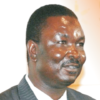
Tom Peter Migun Ogada
African Centre for Technology Studies
Executive Director
Tom Peter Migun Ogada is an Associate Professor of Energy and Environmental Engineering. He holds an MSc in Mechanical Engineering, a PhD in Chemical Engineering and an MBA in Strategic Management.
Since 2018, Tom Ogada is the Executive Director of the African Centre for Technology Studies. He has been County Minister for Trade, Industrialization, Cooperatives, and Investment in Kenya (2013-2017) and he is a former Managing Director of Kenya Industrial Research and Development Institute (2006-2009). In discussing sustainable development topics, he can draw from his broad current and past experiences.
Discussion and Q&A about sustainable food systems

Miyuki Iiyama
Japan International Research Center for Agricultural Sciences
Director Research Strategy Office
With a PhD in economics from the University of Tokyo, Miyuki Iiyama has extensive experience in quantitative and qualitative analyses of integrated farming system evolutions, technological adoption, and sustainable livelihoods in rural Africa.
With almost 20 years of experience in East and Southern Africa, she has been especially assigned to do research on the evaluation of socio-economic and environmental viability of sustainable agricultural intensification within smallholder systems.
In April 2019, Miyuki Iiyama assumed the position of Research Strategy Office Director at the Japan International Research Centre for Agricultural Sciences (JIRCAS). She is also in charge of the Research Program on Information Analysis, of which the activities include the collection, analysis and dissemination of information on developments and trends in international agriculture, forestry and fisheries to guide the identification of research priorities and research agendas.

Jean-Francois Soussana
French National Institute for Agriculture, Food and Environment
Vice-President
Jean-François Soussana currently serves as the Vice-Chair for International Policy at the French National Institute for Agriculture, Food and Environment (INRAE). As a doctor in plant physiology, he has led a research unit on grassland ecosystems and global change. He coordinates national and European research projects and international programmes on agriculture, soils and climate change. Being a member of the IPPC since 1998 and a Highly Cited Researcher (2018), Soussana has published over 150 refereed research papers in various international journals. He shared the Nobel Prize for Peace in 2007 as the Lead Author of IPCC AR4 and has been awarded national and international distinctions.

Suresh Pal
ICAR-National Institute of Agricultural Economics and Policy Research
Director
Suresh Pal has a PhD in agricultural economics from ICAR-Indian Agricultural Research Institute (New Delhi). Before joining ICAR-National Institute for Agricultural Economics and Policy Research in 2016, he was Member (Official), Commission for Agricultural Costs and Prices, and Head, Division of Agricultural Economics, ICAR-Indian Agricultural Research Institute (New Delhi). He has made significant contributions to the advancement of research and teaching in the area of agricultural development and policy.
He has published extensively (books, working papers, journal articles) on different aspects of Indian agriculture and his publications are cited internationally. He has guided doctoral and masters students and some of them have received prestigious awards for their research work. He was a member of various committees of the Government, notably ICAR review committees, expert groups of Niti Ayog (formerly Planning Commission), Ministry of Environment and Forest, Department of Science and Technology, Office of Principal Scientific Advisor, and National Bank for Agriculture and Rural Development.
He was instrumental in designing and institutionalizing research planning and management reforms in the national agricultural research system and facilitated external peer reviews of ICAR and its institutes. He has also worked with international organizations like World Bank, Food and Agriculture Organization, Overseas Development Institute, and CGIAR Centres for short-term assignments and collaborative programs. He has received awards for his significant research contributions, notably the Rafi Ahmed Kidwai Award of ICAR, best journal article awards, Norman E Borlaug International Science Fellowship, Fellow of Indian Society of Agricultural Economics (Mumbai), and Fellow of the National Academy of Agricultural Sciences.

Tom Peter Migun Ogada
African Centre for Technology Studies
Executive Director
Tom Peter Migun Ogada is an Associate Professor of Energy and Environmental Engineering. He holds an MSc in Mechanical Engineering, a PhD in Chemical Engineering and an MBA in Strategic Management.
Since 2018, Tom Ogada is the Executive Director of the African Centre for Technology Studies. He has been County Minister for Trade, Industrialization, Cooperatives, and Investment in Kenya (2013-2017) and he is a former Managing Director of Kenya Industrial Research and Development Institute (2006-2009). In discussing sustainable development topics, he can draw from his broad current and past experiences.

Maximo Torero Cullen
Food and Agriculture Organization of the United Nations
Chief Economist
Maximo Torero Cullen is the Chief Economist of the Food and Agriculture Organization (FAO). He joined the Organization in January 2019 as Assistant Director-General for the Economic and Social Development Department. Prior to joining FAO, he was the World Bank Group Executive Director for Argentina, Bolivia, Chile Paraguay, Peru and Uruguay since November 2016. Before the Bank, Torero led the Division of the Markets, Trade, and Institutions at the International Food Policy Research Institute (IFPRI).
His major research work lies mostly in analysing poverty, inequality, the importance of geography and private or public assets in explaining poverty, in policies oriented towards poverty alleviation based on the role played by infrastructure, institutions, and on how technological breakthroughs (or discontinuities) can improve the welfare of households and small farmers. His experience encompasses Latin America, Sub-Saharan Africa, and Asia.
Torero holds a PhD and a Master’s degree in Economics from the University of California, Los Angeles (UCLA), and a Bachelor’s degree in Economics from the University of the Pacific, Lima, Peru. He is a professor on leave at the University of the Pacific, Perú, and an Alexander von Humboldt Fellow at the University of Bonn, Germany. He has also published in several top journals, including QJE, Econometric Theory, AER-Applied Microeconomics, RSTAT, and Labor Economics.
In 2000, he received the Georg Foster Research Fellowship of the Alexander von Humboldt Foundation. In 2000 and 2002, he won the Award for Outstanding Research on Development given by the Global Development Network. In 2014, he received the Chevalier de l’Ordre du Mérite Agricole.
Food
Thematic session
Technological innovations to realise sustainable food systems – part 2
28/10/2020, 11:30 - 13:00
The realisation of sustainable food systems depends on many factors that need to be addressed, including soil and land use, breed and farming, and harvesting. For each of them, technological innovation proves to be a critical enabler.
What innovations can help secure soil nitrogen sources and reduce environmental impact, for example? Which technologies enable improved cultivation management, automation of farming operations and increased production? And how can energy savings be achieved in harvesting and distribution?
Achieving sustainable food systems is not just a matter of how food is produced, however. Aspects related to marketing and consumption should be addressed, as well. Which gains to expect by deploying technological innovations for ensuring traceability of produce or re-using food waste, for example? And how to control excess food intake to reduce the amount of food loss?
Chaired by

Jean-Francois Soussana
French National Institute for Agriculture, Food and Environment
Vice-President
Jean-François Soussana currently serves as the Vice-Chair for International Policy at the French National Institute for Agriculture, Food and Environment (INRAE). As a doctor in plant physiology, he has led a research unit on grassland ecosystems and global change. He coordinates national and European research projects and international programmes on agriculture, soils and climate change. Being a member of the IPPC since 1998 and a Highly Cited Researcher (2018), Soussana has published over 150 refereed research papers in various international journals. He shared the Nobel Prize for Peace in 2007 as the Lead Author of IPCC AR4 and has been awarded national and international distinctions.
Smart agriculture for sustainable development
Smart agriculture is a management concept that guides actions towards safeguarding or increasing agricultural productivity and food security under variable physical and chemical constraints and in a changing climate. It relies on observations, analyses and interpretations to make decisions and to implement these at different scales in a field, farm or region. It is increasingly supported by the development and the use of information and communication technologies.
The concept of precision agriculture does not depend on the technology level used in farming. Precision agriculture uses sensors to collect data about soils and crops and their evolution. In order to complement the expertise of farmers, these data have to be analysed such that they can become an information base to make better decisions. Training of consultants and advisory services is essential. However, the expertise of a farmer and his skills are of the most important components.
The enabling technology of mobile phones, the adoption of GPS and the entrepreneurship of local IT, IoT, and machinery service providers has jump-started agricultural mechanisation service enterprises. Private farmers and entrepreneurs are willing to invest in agricultural mechanisation and they can create a vibrant market for services that benefit small-scale farmers and also contribute to the creation of attractive jobs. These new approaches require a rapid deployment of machinery and IT service centres staffed by skilled technical and logistic specialists.
Mechanised technologies that have been adopted in Africa and elsewhere have often addressed challenges related to men’s tasks – often with negative consequences for women. However, they also have the potential to be developed as a service by women and young entrepreneurs.

Josse De Baerdemaeker
KU Leuven, Division of Mechatronics, Biostatistics and Sensors (MeBioS)
Professor
Josse De Baerdemaeker graduated from the KU Leuven, Belgium and holds an MSc and PhD degree in Agricultural Engineering from Michigan State University. He is recognised as the founding father of the concepts of precision agriculture in Flanders, Europe and the world. His research on the physics of agricultural products evolved into technology for precision agriculture, automation and robotics. Improving technology in crop cultivation, harvesting and handling to minimise losses and optimise yield and income for farmers define his primary focus in precision agriculture and automation
Josse De Baerdemaeker is an Emeritus Professor at the KU Leuven and was a visiting Professor at Kyoto University, Japan. During 25 years, he was the chairman of a grower-owned fruit and vegetable marketing cooperative. Currently he is the chairman of VILT, the Flanders Infocenter for Agriculture and Horticulture.
During his career and up to this day, he has given a lot of attention to agricultural engineering and mechanisation in Africa, South-East Asia and Latin America. He has always done so in an effort to link research and development with the needs of local farming communities.
Development of smart agricultural production technology and its social implementation through national projects
Society 5.0 is a super smart society, a concept that was proposed by the Government of Japan. Its goal is to achieve economic development and solving social issues, build a safe, secure and vibrant human-centred society, by making full use of ICT and digital technologies and by fusing physical space and cyber space. These goals are consistent with the SDGs.
The Government of Japan has aimed to promote innovation through national projects. First, it is trying to develop the innovative technologies in the Cabinet Office-led ‘Strategic Innovation Promotion Program in Japan (SIP)’, and then the achievements of SIP are further invested by ministry- and agency-led projects to create innovation. In SIP, the National Agriculture and Food Research Organisation (NARO) has developed smart agricultural technologies such as robot tractors and robot rice transplanters.
In 2019, the Ministry of Agriculture, Forestry and Fisheries launched a “Smart Agriculture Demonstration Project” at 148 demonstration farms throughout Japan, in order to spread smart agricultural technologies developed by SIP.
A trial in the hilly and mountainous area where it is difficult to expand the scale of farming because of the steep slope and limited arable land, revealed that the introduction of smart agricultural technologies result in the increase of yields and profits of the farmers. NARO has embarked on the realisation of the agricultural version of Society 5.0 and contributes to the achievement of the SDGs through the efforts on smart agriculture as a “whole government” approach.
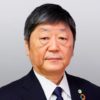
Makoto Nakatani
National Agriculture and Food Research Organization
Senior Vice-President
Since April 2018, Makoto Nakatani is the Senior Vice-President of the National Agriculture and Food Research Organisation (NARO). After graduating from Osaka Prefecture University, Makoto joined the Agricultural Research Centre, Ministry of Agriculture, Forestry and Fisheries (MAFF) in 1981 and carried out research on cultivation and breeding of sweet potatoes.
At MAFF, he started his career as a research scientist. Makoto succeeded in breeding more than 10 variety of sweet potatoes. He also holds 5 patents, including patents for processing sweet potatoes and for breeding sweet potatoes with high anthocyanin content. He also engaged in collaborative research project with research scientists of other crops, such as buckwheat and Amaranthus.
In 2005, after about 24 years of research work, Makoto started his career as a government officer, Director for Research and Development Planning at Agriculture, Forestry and Fisheries Research Council of MAFF. For about 10 years, he took part in policy making of agricultural research & development, by managing various research projects and by proposing future agricultural technologies.
Earth Observation: a flywheel technology for further digitisation of sustainable agro-food systems
Low Orbit is open for business! Thanks to the technological evolutions of Earth Observation satellites and the strategic investments of public organisations in Earth Observation programmes like Copernicus, Landsat…. we’re moving away from an explorational phase into an era where we need to have socio-economic reasons to do stuff in low orbit.
Space and airborne observation systems can provide global, high-quality and near-real-time digital information on various parts of the agro-food value chain. This is confirmed by several examples on the practical use of Earth Observation technology combined with Deep learning-based advanced analytics and data fusion techniques.
Apart from improving crop quantity and quality, these technologies will also help to balance the economic, environmental and societal responsibility of the global agro-food domain.

Steven Krekels
VITO
Director Remote Sensing
Steven Krekels has been the manager of VITO’s Remote Sensing unit since November 2014. VITO Remote Sensing develops and operates space- and airborne-based earth observation systems that translate raw data into consumable information about population, growth, urban development, agriculture & vegetation, natural disasters, and more.
After receiving his master’s degree in Applied Engineering (Telecommunications), Steven joined the Bell Labs of Lucent Technologies for research and development in optical networks. In 2001, he switched to the space industry and started working in earth observation and satellite communication at Thales Alenia Space. Later he moved on to Newtec – a leading Belgian satellite communication equipment provider – where he took on different managerial roles in the R&D department until he became the Managing Director of Newtec’s subsidiary in Berlin.
Steven always likes to be at the sweet spot where cutting-edge technology, creative people and viable business meet. He firmly believes that technology can accelerate our transition to a sustainable world.
In May 2017, Steven was selected as one of the top 50 Belgian Tech Pioneers, all experts in various applications working hard to create a better future.
Driving sustainable impact at farm level using digital tools and network technology

Ekaterina Kargopoltseva
ABInBev
Senior Sourcing Director for Raw Materials EMEA
Ekaterina Kargopoltseva is a passionate, business-centric professional currently leading Raw Materials Procurement for AB InBev Europe. Ekaterina began work at AB InBev as a buyer in 2011, being responsible for supply chain security for BNL countries and sourcing of raw materials.
Ekaterina then held different positions within Europe and Global Procurement Teams, managing various geographical regions and categories in Belgium and Switzerland, before being appointed to Senior Sourcing Director of Raw and Auxiliary Materials, Utilities for Europe in January 2019. She’s since been on a mission to bring best procurement practices and strategic category management in Europe, focusing on the sustainability agenda in agriculture and raw materials supply chains as well as the energy sector.
Ekaterina studied Economics and Finance at the London School of Economics and received a Masters in Business Management from Vlerick Business School.
Discussion and Q&A about smart agriculture

Jean-Francois Soussana
French National Institute for Agriculture, Food and Environment
Vice-President
Jean-François Soussana currently serves as the Vice-Chair for International Policy at the French National Institute for Agriculture, Food and Environment (INRAE). As a doctor in plant physiology, he has led a research unit on grassland ecosystems and global change. He coordinates national and European research projects and international programmes on agriculture, soils and climate change. Being a member of the IPPC since 1998 and a Highly Cited Researcher (2018), Soussana has published over 150 refereed research papers in various international journals. He shared the Nobel Prize for Peace in 2007 as the Lead Author of IPCC AR4 and has been awarded national and international distinctions.

Josse De Baerdemaeker
KU Leuven, Division of Mechatronics, Biostatistics and Sensors (MeBioS)
Professor
Josse De Baerdemaeker graduated from the KU Leuven, Belgium and holds an MSc and PhD degree in Agricultural Engineering from Michigan State University. He is recognised as the founding father of the concepts of precision agriculture in Flanders, Europe and the world. His research on the physics of agricultural products evolved into technology for precision agriculture, automation and robotics. Improving technology in crop cultivation, harvesting and handling to minimise losses and optimise yield and income for farmers define his primary focus in precision agriculture and automation
Josse De Baerdemaeker is an Emeritus Professor at the KU Leuven and was a visiting Professor at Kyoto University, Japan. During 25 years, he was the chairman of a grower-owned fruit and vegetable marketing cooperative. Currently he is the chairman of VILT, the Flanders Infocenter for Agriculture and Horticulture.
During his career and up to this day, he has given a lot of attention to agricultural engineering and mechanisation in Africa, South-East Asia and Latin America. He has always done so in an effort to link research and development with the needs of local farming communities.

Makoto Nakatani
National Agriculture and Food Research Organization
Senior Vice-President
Since April 2018, Makoto Nakatani is the Senior Vice-President of the National Agriculture and Food Research Organisation (NARO). After graduating from Osaka Prefecture University, Makoto joined the Agricultural Research Centre, Ministry of Agriculture, Forestry and Fisheries (MAFF) in 1981 and carried out research on cultivation and breeding of sweet potatoes.
At MAFF, he started his career as a research scientist. Makoto succeeded in breeding more than 10 variety of sweet potatoes. He also holds 5 patents, including patents for processing sweet potatoes and for breeding sweet potatoes with high anthocyanin content. He also engaged in collaborative research project with research scientists of other crops, such as buckwheat and Amaranthus.
In 2005, after about 24 years of research work, Makoto started his career as a government officer, Director for Research and Development Planning at Agriculture, Forestry and Fisheries Research Council of MAFF. For about 10 years, he took part in policy making of agricultural research & development, by managing various research projects and by proposing future agricultural technologies.

Steven Krekels
VITO
Director Remote Sensing
Steven Krekels has been the manager of VITO’s Remote Sensing unit since November 2014. VITO Remote Sensing develops and operates space- and airborne-based earth observation systems that translate raw data into consumable information about population, growth, urban development, agriculture & vegetation, natural disasters, and more.
After receiving his master’s degree in Applied Engineering (Telecommunications), Steven joined the Bell Labs of Lucent Technologies for research and development in optical networks. In 2001, he switched to the space industry and started working in earth observation and satellite communication at Thales Alenia Space. Later he moved on to Newtec – a leading Belgian satellite communication equipment provider – where he took on different managerial roles in the R&D department until he became the Managing Director of Newtec’s subsidiary in Berlin.
Steven always likes to be at the sweet spot where cutting-edge technology, creative people and viable business meet. He firmly believes that technology can accelerate our transition to a sustainable world.
In May 2017, Steven was selected as one of the top 50 Belgian Tech Pioneers, all experts in various applications working hard to create a better future.

Ekaterina Kargopoltseva
ABInBev
Senior Sourcing Director for Raw Materials EMEA
Ekaterina Kargopoltseva is a passionate, business-centric professional currently leading Raw Materials Procurement for AB InBev Europe. Ekaterina began work at AB InBev as a buyer in 2011, being responsible for supply chain security for BNL countries and sourcing of raw materials.
Ekaterina then held different positions within Europe and Global Procurement Teams, managing various geographical regions and categories in Belgium and Switzerland, before being appointed to Senior Sourcing Director of Raw and Auxiliary Materials, Utilities for Europe in January 2019. She’s since been on a mission to bring best procurement practices and strategic category management in Europe, focusing on the sustainability agenda in agriculture and raw materials supply chains as well as the energy sector.
Ekaterina studied Economics and Finance at the London School of Economics and received a Masters in Business Management from Vlerick Business School.

Tom Peter Migun Ogada
African Centre for Technology Studies
Executive Director
Tom Peter Migun Ogada is an Associate Professor of Energy and Environmental Engineering. He holds an MSc in Mechanical Engineering, a PhD in Chemical Engineering and an MBA in Strategic Management.
Since 2018, Tom Ogada is the Executive Director of the African Centre for Technology Studies. He has been County Minister for Trade, Industrialization, Cooperatives, and Investment in Kenya (2013-2017) and he is a former Managing Director of Kenya Industrial Research and Development Institute (2006-2009). In discussing sustainable development topics, he can draw from his broad current and past experiences.
Food Water
Deep dive session
Technology mix for sustainable irrigation
26/10/2020, 09:30 - 11:30
Anywhere around the world, sustainable irrigation is critical for realising food and water security. Even if technological solutions with significant water saving potential have been in play for some time, upscaling their use has been challenging in various hydrogeological and socio-economic conditions. Hence, most regions continue to suffer from low efficiency in irrigation water use. Enhancing that efficiency requires more than deploying technologies such as micro-irrigation systems, digital tools, and solar-powered water pumps. It demands a mix combining the use of technologies and best practices with effective policies and sustainable finance mechanisms, as well as inclusive water management.
Chaired by
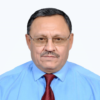
Alok Sikka
International Water Management Institute (IWMI)
IWMI Representative India & Principal Researcher
Alok K. Sikka is with the International Water Management Institute, Delhi Office as IWMI Representative-India since April, 2016. Prior to joining IWMI, he served as Deputy Director General (Natural Resource Management), Indian Council of Agricultural Research (ICAR) and Technical Expert (Watershed Development) (in the rank of Additional Secretary to Govt. of India), National Rainfed Area Authority (NRAA), Planning Commission, Government of India, New Delhi. He was Director of ICAR Research Complex for Eastern Region, Patna and Basin Coordinator for Indo-Gangetic Basin under the CGIAR Challenge Program on Water and Food from 2002-2007. He is Ph. D. in Civil and Environmental Engineering with specialisation in Hydrology and Water Resources Engineering from Utah State University, Logan, Utah.
Besides working with ICAR for many years at the Indian Institute of Soil & Water Conservation, Dehradun and its Research Centres, he was with the National Institute of Hydrology, Roorkee; visiting Professor at University of Arizona, Tucson; and Faculty at the Oregon State University, Corvallis, USA. He has more than 251 publications and is recipient of many national awards including Fellow of National Academy of Agricultural Sciences. He has a rich and diverse experience of over 38 years in research, institutional and policy issues, teaching, training, extension and consultancy in the areas of natural resource management, soil & water conservation, watershed management, water harvesting, hydrologic modelling, water management, drought management, climate change, water productivity and farming systems.
Opening remarks: Technology mix for sustainable irrigation

Alok Sikka
International Water Management Institute (IWMI)
IWMI Representative India & Principal Researcher
Alok K. Sikka is with the International Water Management Institute, Delhi Office as IWMI Representative-India since April, 2016. Prior to joining IWMI, he served as Deputy Director General (Natural Resource Management), Indian Council of Agricultural Research (ICAR) and Technical Expert (Watershed Development) (in the rank of Additional Secretary to Govt. of India), National Rainfed Area Authority (NRAA), Planning Commission, Government of India, New Delhi. He was Director of ICAR Research Complex for Eastern Region, Patna and Basin Coordinator for Indo-Gangetic Basin under the CGIAR Challenge Program on Water and Food from 2002-2007. He is Ph. D. in Civil and Environmental Engineering with specialisation in Hydrology and Water Resources Engineering from Utah State University, Logan, Utah.
Besides working with ICAR for many years at the Indian Institute of Soil & Water Conservation, Dehradun and its Research Centres, he was with the National Institute of Hydrology, Roorkee; visiting Professor at University of Arizona, Tucson; and Faculty at the Oregon State University, Corvallis, USA. He has more than 251 publications and is recipient of many national awards including Fellow of National Academy of Agricultural Sciences. He has a rich and diverse experience of over 38 years in research, institutional and policy issues, teaching, training, extension and consultancy in the areas of natural resource management, soil & water conservation, watershed management, water harvesting, hydrologic modelling, water management, drought management, climate change, water productivity and farming systems.
Keynote address by Shri U. P. Singh
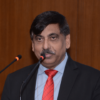
Shri U.P. Singh
Department of Water Resources, River Development & Ganga Rejuvenation, Ministry of Jal Shakti, Goverment of India
Secretary
Shri U.P. Singh is a 1985 batch Indian Administrative Service Officer of Odisha Cadre. He did his B.Tech in Mechanical Engineering from IIT, Kanpur. Having hold important assignments in both Central and State Governments, he possesses rich and varied experience.
He joined the Ministry of Water Resources & River Development and Ganga Rejuvenation on 1.6. 2016 as Additional Secretary and also held the post of Mission Director, National Water Mission (NWM). Later he assumed the charge of Director General, National Mission for Cleaning Ganga (NMCG) on 7.10.2016. Prior to joining the Ministry of Water Resources, RD & GR he worked as Additional Secretary in the Ministry of Petroleum and Natural Gas. He has the experience of working in different sectors like Water Resources, Finance, Steel and Transport.
Presently he is Secretary in the Department of Water Resources, River Development & Ganga Rejuvenation, Ministry of Jal Shakti, w.e.f. 1.12.2017. He is deeply involved in policy, planning and management of water resources in India. He oversees the implementation of PMKSY Projects, Inter-Linking of Rivers, two World Bank funded projects, viz. National Hydrology Project and National Ground Water Management and Improvement Scheme. These projects envisage revolutionizing water resources management in the country.
Succes stories on agri-irrigation technology in Israel
Dan Alluf will discuss the technologies and the research in the area of irrigation water use in Israel and illustrate this with regional examples of replications. He will highlight his experience & success stories in implementing Israeli know-how & agri-irrigation technology solutions and collaborative business models in Indian fields and other parts of the world.

Dan Alluf
Embassy of Israel
MASHAV Counsellor, Science and Agriculture
Dan Alluf heads the Agriculture and Water segments at the embassy of Israel in India & Sri-Lanka. He brings 17 years of Managerial Experience in both Private and Public sectors across global markets, with specialisation in Drip-irrigation and Water Management. Dan holds a Master degree of Business Administration and a B.Sc. graduate in Plant Science, Agriculture Economy & Marketing. He is team leader of the Agriculture ISRAEL-INDIA Government-to-Government cooperation, the “INDO-ISRAEL AGRICULTURAL PROJECT” (IIAP) and the “INDO-ISRAEL VILLAGES OF EXCELEENCE” (IIVOE) in cooperation with MIDH GOI and State governments. He heads the water cooperation on the Israel- India Government-to-Government level and leads the “INDIA-ISRAEL BUNDELKHAND WATER PROJECT” in cooperation with Govt. of India, Uttar Pradesh Govt. & JAL SHAKTI GOI.
Adaptive Measures in Farm Level Water Management for Higher WUEs
Globally, rising temperatures will translate into increased crop water demand. Therefore, special impetus should be given towards mitigation at farm-level by enhancing the capabilities of community-adopted climate-resilient technological options. Together with an approach at a catchment level, this will help to increase the overall efficiency of water use.
The relative quantities of water being lost at the different levels in an irrigation system needs to be considered carefully and measures should be taken to reduce the losses and manage the water resources efficiently. The largest volume of water lost is normally at the field level, where both the irrigated surface area and percolation losses below the root zone are high. The second major loss of water happens at during the distribution of water from field-to-field in the field channels.
The Climate Adapt Project (funded by the Ministry of Foreign Affairs, Norway and coordinated by NIBIO, Norway), AP Micro Irrigation Project (funded by NABARD, India), Base line studies on Water Use Efficiencies of Irrigation Projects (Funded by Govt. of India) have made significant contributions to capacity building, design and implementation of various measures to improve water use efficiency in the states of Andhra Pradesh and Telangana in India. The outcomes from these projects have helped in developing policy guidelines and wider adaptation of efficiency measures in the two states.

Kaluvai Yella Reddy
International Commission on Irrigation and Drainage (ICID)
Vice President
Kaluvai Yella Reddy is the Dean (Faculty of Agril. Engg & Technology) of ANGR Agricultural University, Andhra Pradesh, India. He has more than 35 years of experience in teaching, research, project management and administration. He obtained B.Tech (Agril Engg) from Dr PDKV, Akola, M.Tech and Ph.D degrees from IIT, Kharagpur and PG Diploma from University of Arizona, USA.
- As Principal Investigator, he developed Solar Powered Micro Irrigation System in 2002 with the financial support of Govt of India.
- As Project Manager, he successfully completed $ 3.5 million FAO funded AP Water Management Project.
- As Technical Advisor to Andhra Pradesh Micro Irrigation Project (APMIP), he strengthened and supported the $ 570 million project in achieving 1.1 million ha under MI systems in 10 years.
- As Director of WALAMTARI, Hyderabad (2012-2018) he contributed for the growth of the Institute as one of the best in India.
- He organized over 25 national and international conferences and workshops and Published over 120 scientific papers.
- He received the ‘International Commission on Irrigation and Drainage ICID WATSAVE Technology Award’ in the 20th Congress of ICID held in Lahore (2008).
- He was elected as Vice-President of (ICID) in the 68th International Executive Committee meeting held in Mexico City in Oct 2017.
He visited more than 20 countries on official and technical assignments.
Waterwise: A Plant Based Sensor and Advanced Analytics Approach for Refining Irrigation Scheduling
Across irrigation industries, there remain significant opportunities to improve yield and water use efficiency with accurate irrigation timing. Efficient irrigation relies on determining crop water status and predictions of future crop water needs. Through the CSIRO Digiscape “WaterWise” initiative we have developed a series of advanced analytics platforms that combine the use of monitored and forecasted crop water stress status (reliant on continuous canopy temperature measurements and weather data) to provide necessary information on irrigation timing. Improved accuracy in these decisions is supported by utilising underpinning knowledge of crops’ physiological response to temperature. The initiative is developing approaches to speed up the application of this technology for use in other irrigated crops (a minimum toolbox approach). Currently, WaterWise is being evaluated using a web-based application linked to real-time sensors, and it is intended that these systems will form part of an integrated approach to irrigation management.

Rose Brodrick
Commonwealth Scientific and Industrial Research Organization (CSIRO)
Research Scientist
Rose Brodrick, Senior Research Scientist, CSIRO Agriculture and Food, Canberra Australia. Dr Brodrick’s research is focused on developing new technologies and integrated digital systems for the agricultural industry to improve farm productivity. Her primary research area is using sensing technology (in-field, aerial and satellite) to develop solutions for crop management. The teams Dr Brodrick leads are working on projects to responding to challenges generated by drought, variable and changing climates, by developing and delivering new knowledge, technologies and system solutions tailored to assisting in on-farm decision making.
Brodrick has 20 years of experience in working with irrigators (cotton, tomatoes, sugarcane, tree crops) to develop management solutions in irrigated agriculture. Her research into crop physiology and agronomy has led to changes in production practices within the Australian Cotton Industry, and she has strong collaborations with researcher overseas. Dr Brodrick leads the CSIRO’s WaterWise Project that brings together a multi-disciplinary team that are developing digital solutions for precision irrigation in high-value crops as part of the CSIRO’s Digiscape Future Science Platform. Ultimately the aim is for these systems to part of a fully integrated irrigation toolbox for growers delivering savings in water that can be used to boost productivity or increase cropping area.
Cloud based Irrigation Management
Manna, an irrigation intelligence leader, provides growers around the world with the actionable information they need to make better-informed and more confident irrigation decisions. Its sensor-free, software-only approach leverages high-resolution, frequently refreshed satellite data and hyper-local weather information to deliver highly affordable and accessible solutions for site-specific irrigation recommendations.
In order to increase water use efficiency of Micro-irrigation systems and conventional flood irrigation, farmers need to have accurate forecasts & estimates of water requirement for crops on real-time basis i.e minimum weekly basis. This helps farmers apply precise amounts of water to the crop based on farm conditions as well crop conditions and resulting in increased production, increased quality of production and savings in water & electricity.
At present, more than 2000 Indian Farmers (Area -4000 Ha), are using this software and have received excellent results.
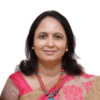
Sangita Ladha
RIVULIS Irrigation India Pvt Ltd.
Director-Business
DSangita Ladha is M-Tech – Agricultural Engineering from IIT-Kharagpur and Doctorate in Agricultural Development. She has been spearheading operations with leading organisations in Irrigation and Water Management and is currently associated with Rivulis Irrigation India Pvt Ltd as Director Business.
Her domain expertise is Precision Farming, Automated Irrigation and Water Management, Protected
Cultivation – Green-house Technology, Agri-Value Chain Management and Digital informatics-based agro-advisory services. She has nearly 30 years of experience in the area of Design, Marketing and Business Development of Micro-irrigation Systems and in Development and Management of Practical and Innovative Indo-Dutch Training Centers for horticulture and in particular for promotion of Greenhouse Technology in the country. She has expertise in Conceptualization, Development, Marketing and Promotion of hi-tech horticulture projects, advanced and practical training programmes and handling turnkey contracts largely in the area of Greenhouse/Protected Cultivation and in Water Conservation-Drip/Sprinkler/landscape irrigation.
She was formerly Director of Indo-Dutch advanced and practical training centres in hi-tech horticulture, namely International Horticulture Innovation and Training Centre (IHITC), Jaipur and of Horticulture Training Centre, (HTC), Pune and was instrumental in bagging and execution of innovative projects under USAID and Euro-AID. She was associated with M/s Jain Irrigation Systems Ltd, as the Vice President for Marketing and Business Development and was handling Corporate affairs and Policy advocacy in New Delhi.
Leveraging technologies for participatory enhancement of irrigation water use efficiency
The dominant use of water for irrigation, especially in the South Asian region that has the highest water withdrawal (about 92%) for agriculture, necessitates adopting innovative approaches and technologies to improve the current water use in irrigation sector. Creating models that can overcome the persistent barriers in the sector with widescale impact requires convergence of innovative technologies with practitioners on the ground particularly the farmers.
This presentation shall bring to the fore the potential opportunities of enhancing the irrigation water use efficiency through innovative technologies and participatory irrigation management through stakeholder prioritised interventions with an upscaling potential for a wider impact. It shall highlight some of the innovative approaches adopted to test technological solutions at the grassroot level through a participatory multi-stakeholder platform involving the local farmers in Punjab (India) and creating an attractive package of affordable & prioritized agri-water efficient interventions for crops like paddy and wheat. These prioritized interventions resulted in significant water savings (up to about 30%) as compared to the conventional farms.
The presentation shall also introduce an innovative ‘Optiflo’ technology tested in Maharashtra (India) that promises additional water savings in an existing micro-irrigation system through a pressure-independent flow controller which gives a near-constant flow rate and reduces the associated water losses.

Mr. Anshuman
Water Resources, The Energy and Resources Institute (TERI)
Associate Director
Jaiswal Anshuman, Associate Director, Water Resources Division of TERI (The Energy and Resources Institute) has been working in the field of water sector since last 23 years. His key qualifications include M. Tech. in energy & environmental management from Indian Institute of Technology (IIT), N. Delhi (India).
His expertise in the water sector lies in the areas of Integrated water resource management (IWRM), Water use efficiency, Water audits, Water conservation & watershed management, Urban & rural water supply & demand management, Climate change and water security; Provision of drinking water, Water quality and pollution studies, Adequacy & efficiency studies of WTPs & ETPs, Water policy & regulation, Training & capacity building in water & environmental management; Environmental impact assessment (EIA) studies etc. He also has expertise in water laboratory & analytical instrumentation, quality control & ISO 9001 systems. He has carried out several comprehensive research and implementation projects in context of water resources (surface water, groundwater), issues (water scarcity, pollution, use efficiency etc.), sectors (irrigation, domestic & industrial) & stakeholders (Central/state Governments & local communities). He has presented several papers at national and international fora and has several relevant national & international publications.
He has been a member of several advisory committees. Currently he is Designated Member, Expert Committee on ‘Ecology, Environment, Earth & Ocean Sciences and Water’ (E3OW) under CSIR (Ministry of Science & Technology, GoI), Designated Member, Domain Expert Group for ‘Deployment of Water technologies’ under CSIR (Ministry of Science & Technology, GoI), Member of Sectional Committee for Water Quality for Industrial Purposes under the Bureau of Indian Standards (BIS), Member of Sectional Committee for Water Quality for Industrial Purposes under the Bureau of Indian Standards (BIS); Jury, National Water Awards (awarded by Ministry of Jal Shakti, GoI); Advisor, Water Digest, Jury Member, Water Digest Water Awards, Organised by Water Digest and UNESCO.
Q&A – Technology mix for sustainable irrigation
Speakers
Food



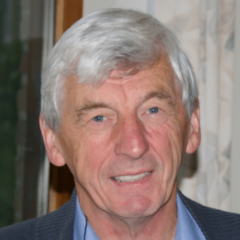



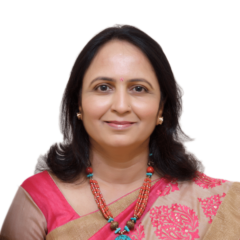
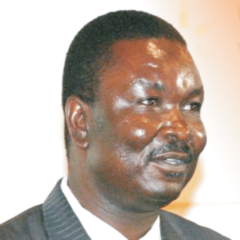
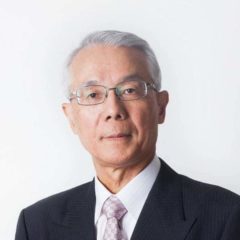
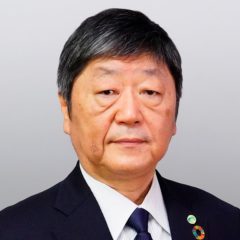
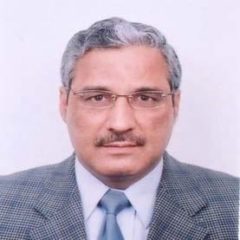
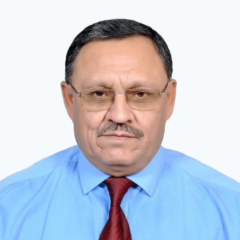
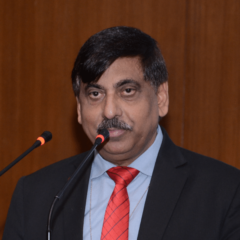

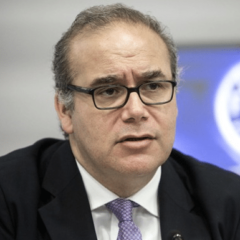

Thematic & deep dive sessions
Developing sustainable food systems
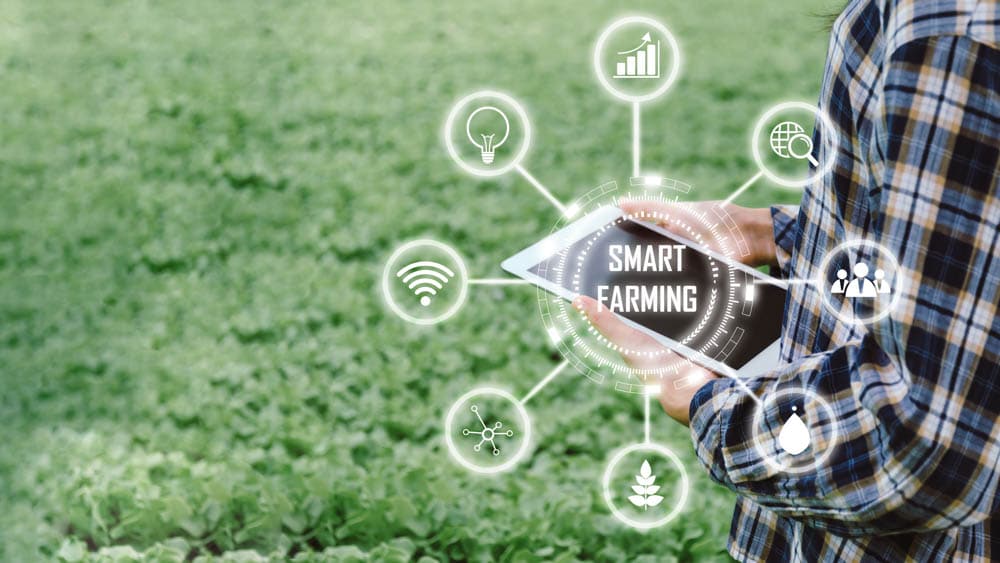
Realising sustainable food systems
The realisation of sustainable food systems depends on many factors. What innovations can help secure soil nitrogen sources and reduce environmental impact, for example? Which technologies enable improved cultivation management and automation of farming operations? How can energy savings be achieved in harvesting and distribution? Which gains to expect by ensuring traceability of produce or re-using food waste? Technological innovation creates opportunities for all these challenges, and emerging technologies such as Artificial Intelligence, Internet of Things or Big data can help develop monitoring capabilities and platforms to support the development of sustainable food systems.
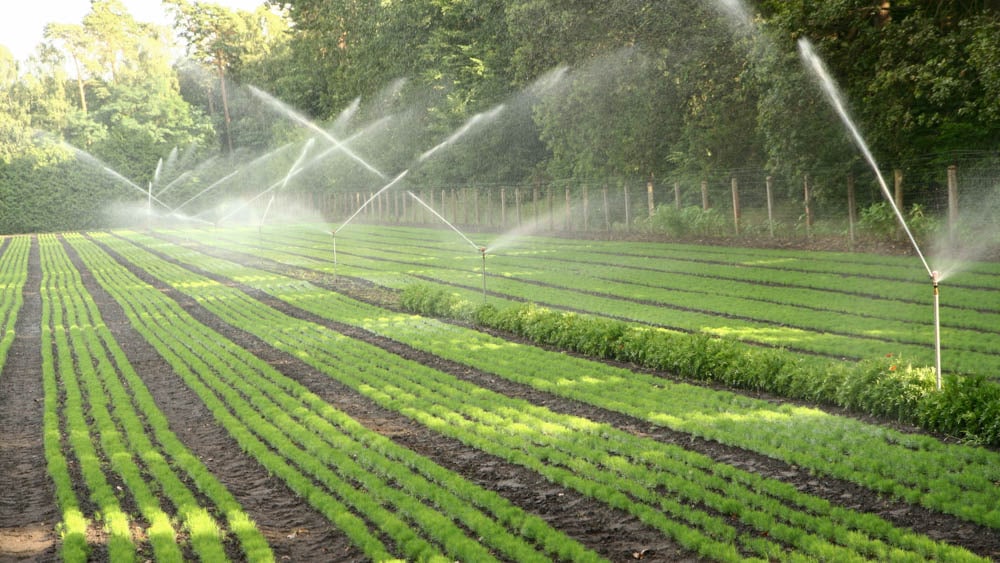
Technology mix for sustainable irrigation
Anywhere around the world, sustainable irrigation is critical for realising food and water security. Even if technological solutions with significant water saving potential have been in play for some time, upscaling their use has been challenging in various hydrogeological and socio-economic conditions. Hence, most regions continue to suffer from low efficiency in irrigation water use. Enhancing that efficiency requires more than deploying technologies such as micro-irrigation systems, digital tools, and solar-powered water pumps. It demands a mix combining the use of technologies and best practices with effective policies and sustainable finance mechanisms, as well as inclusive water management.
Thematic coordinator
Food



